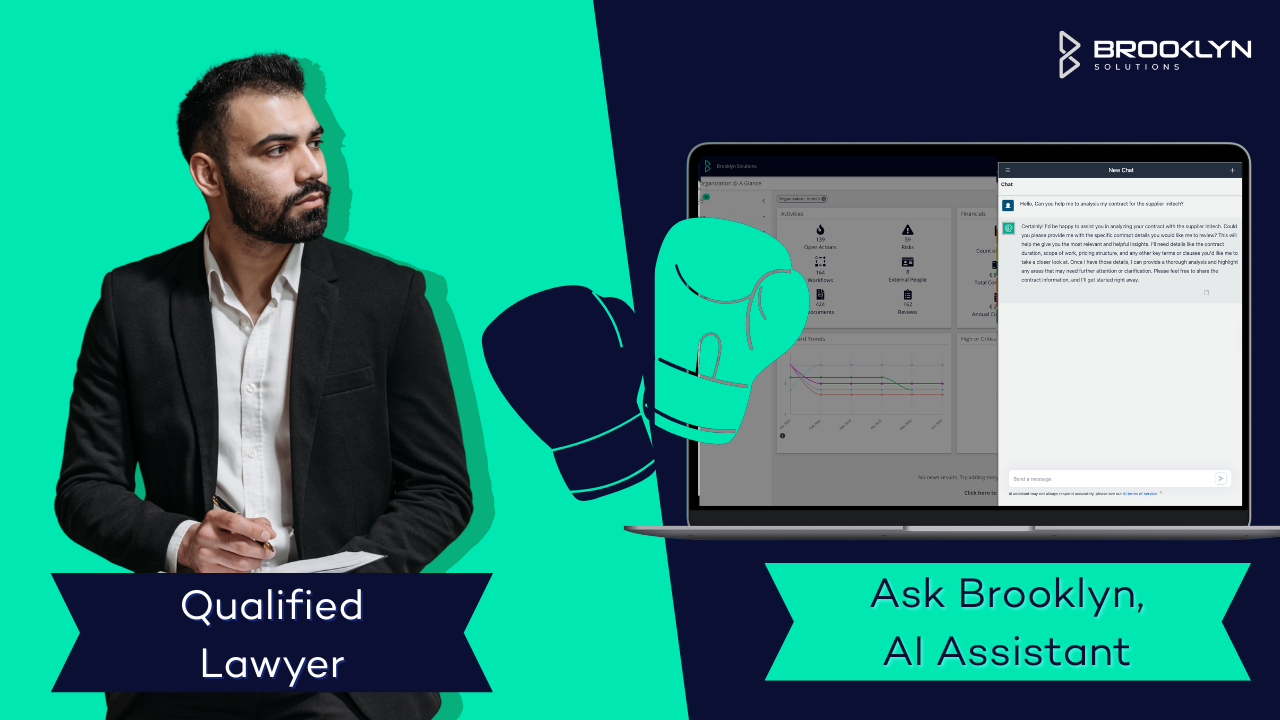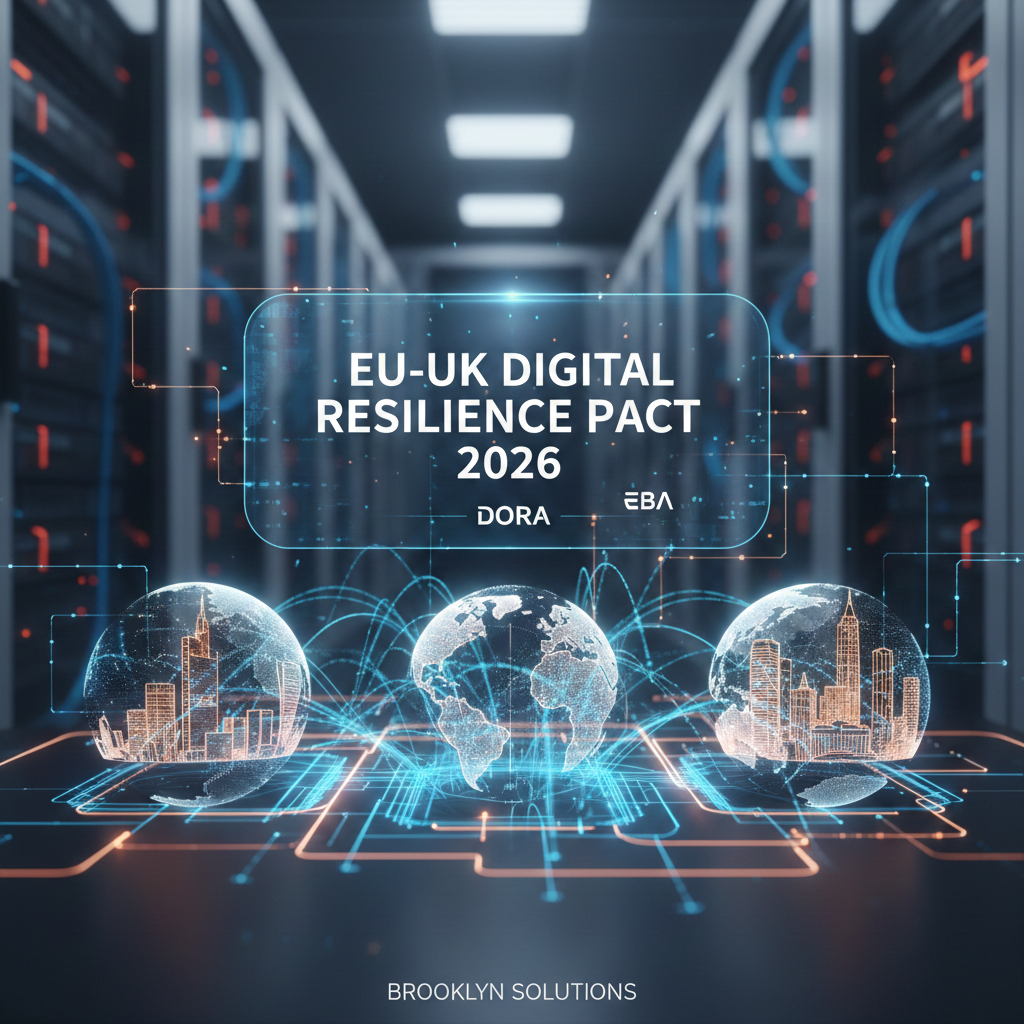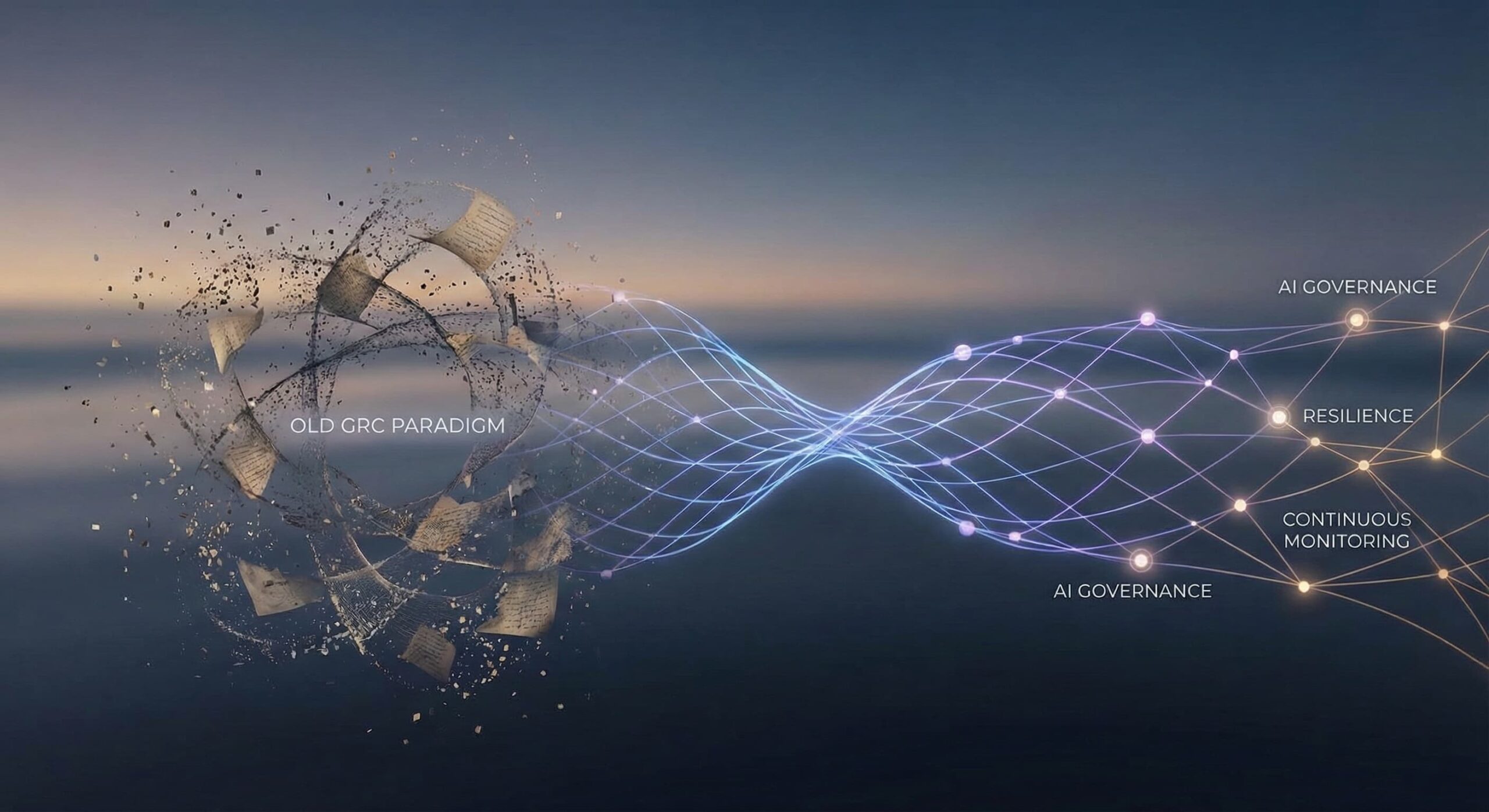The Contract Analysis Boxing Match – AI vs Lawyers
It sounds like the start of a bad joke: “An AI, a lawyer, and a supplier manager walk into a contract…” But in today’s landscape, it’s no laughing matter. Legal and procurement teams are under increasing pressure to accelerate contract reviews without compromising on accuracy or compliance. So when it comes to AI vs Lawyers, who’s the winner?
As legal and procurement teams face increasing pressure to do more with less, the contract review process is long overdue for a transformation. High volumes of contracts, tight regulatory deadlines, and lean legal teams create the perfect storm for bottlenecks, errors, and costs to spiral. That’s where AI steps in, not as a gimmick or a gadget, but as a serious contender for improving legal operations.
With high volumes of contracts, tightening regulations, and stretched legal resources, the traditional review process is overdue for a rethink. Bottlenecks, delays, and human errors are causing costs to spiral. This is not just about increasing legal spend, but also about missed opportunities and greater compliance risk. That is where Artificial Intelligence (AI) steps in. It is no longer a novelty, but a serious contender for transforming legal operations.
So just how serious is AI’s potential? We looked at the data to find out.
Why Contract Review Is Broken
Manual contract analysis is painfully slow, costly and often inefficient. Lawyers, often overqualified for the task, spend hours trawling through documents to flag clauses on liability, indemnity, data processing, termination rights, and other critical terms. It is a repetitive and laborious process that creates delays across procurement, supplier management, and the business units waiting for contracts to progress.
Having unmaximised contract processes can cost. This can massively impact companies, as it could be costing them up to 40% of their contract value
According to Harvard Business Review, inefficient contract processes can cost companies up to 40% of contract value. That’s not just a hit to legal productivity, it is a drag on commercial performance, compliance, and risk posture.
On top of this, there is the rising complexity of regulatory frameworks like DORA, GDPR, and ESG requirements, and suddenly, even reviewing “standard” contracts becomes a strategic burden. Procurement and Supplier Management teams need an efficient and faster way to manage this work, and AI is starting to provide it.
Enter the Challenger: AI for Contract Analysis
Advancements in AI, particularly large language models (LLMs) and natural language processing, have made automated contract review not only viable but valuable. Today’s leading AI tools can extract, classify, and interpret clauses across thousands of contracts in a fraction of the time it takes a human. On the face of it, AI vs lawyers might seem like a done deal.
Gartner’s 2024 Legal and Compliance Automation Report has predicted that by 2026, 50% of legal work associated with major corporate transactions will be automated using AI tools. The reason is simple: AI brings speed, consistency, and cost-effectiveness to a function that’s historically lacked all three.
But bold predictions are one thing; you need to know how AI performs in real-world scenarios. A head-to-head battle, but who will become the overarching champ?
Benchmarking AI Against Legal Professionals
Round 1: Speed
The bell rings, and AI comes out swinging. While human reviewers often take hours to sift through complex contracts, Ask Brooklyn clocks in at just a few minutes. From clause extraction to flagging key risks, the Large Language Models (LLMs), including Ask Brooklyn, can deliver rapid insights at a pace no human can match. This enables legal teams to process substantially high volumes of contracts without proportionally increasing the time invested.
Winner: Ask Brooklyn, by a landslide.
Round 2: Accuracy
This one’s closer. Clause identification accuracy is the heart of the fight, and Ask Brooklyn lands solid punches. When comparatively assessing the F Score in ‘Better Call GPT’ paper, Legal Process Outsourcers achieved an 0.77 F-score in detecting legal issues, while a leading LLM tool was closely comparable with a score of 0.74. This proves that AI is neck-and-neck with legal teams.
The difference? While humans can disagree on how to interpret or tag certain clauses, the AI delivers consistent, repeatable results.
Ask Brooklyn’s Platform AI Assistant has shown strength in identifying legal concepts and clauses in vendor management with accuracy, demonstrating it to be an extremely useful tool in the legal field.
Winner: Draw, but Ask Brooklyn shows remarkable consistency under pressure.
Round 3: Cost Efficiency
Here’s where Ask Brooklyn delivers the knockout blow. No billable hours. No outsourcing fees. Just a one-time cost for results that scale. Compared to traditional legal reviews, the AI offers up to 99.97% cost savings. And, to hit the sweet spot, Ask Brooklyn provides this service with none of the delays or resource bottlenecks of legal teams. This AI vs lawyers result is the sportign equivalent of a dead rubber.
Winner: Ask Brooklyn, clean hit.
And the Champion Is…
AI is not just holding its own – It is winning where it matters most. Ask Brooklyn delivers fast, accurate, and consistent results that free legal teams to focus on high-value strategy, not administrative heavy-lifting. Legal professionals aren’t out of a job. They’re just finally getting a worthy sparring partner.
So… Should Lawyers Be Worried?
Not at all. If anything, this transformation shift is about making lawyers more impactful. It removes the need to spend time on resource-intensive work, and focus on strategy, negotiation, and exceptions that truly require human judgment. AI is ideal for surfacing risk, spotting missing clauses, and summarising standard terms, all at scale.
Legal Procurement teams that begin to embrace automation now will shift from reactive, tactical execution to proactive, strategic enablement. This will enhance the entire contract lifecycle management process for supplier management and wider teams.
Want the Full Breakdown?
This blog is just round one. In our full whitepaper, “Benchmarking The Bar”, we dive deeper into the methodology, results, and real-world implications of Ask Brooklyn and Large Language Models for legal and procurement teams. You will find detailed comparisons across speed, performance, and cost, plus insights into where AI shines and where human expertise still reigns supreme in contract analysis.
Download the whitepaper now to see how AI is changing the game for contract review and what it means for your legal operations:



